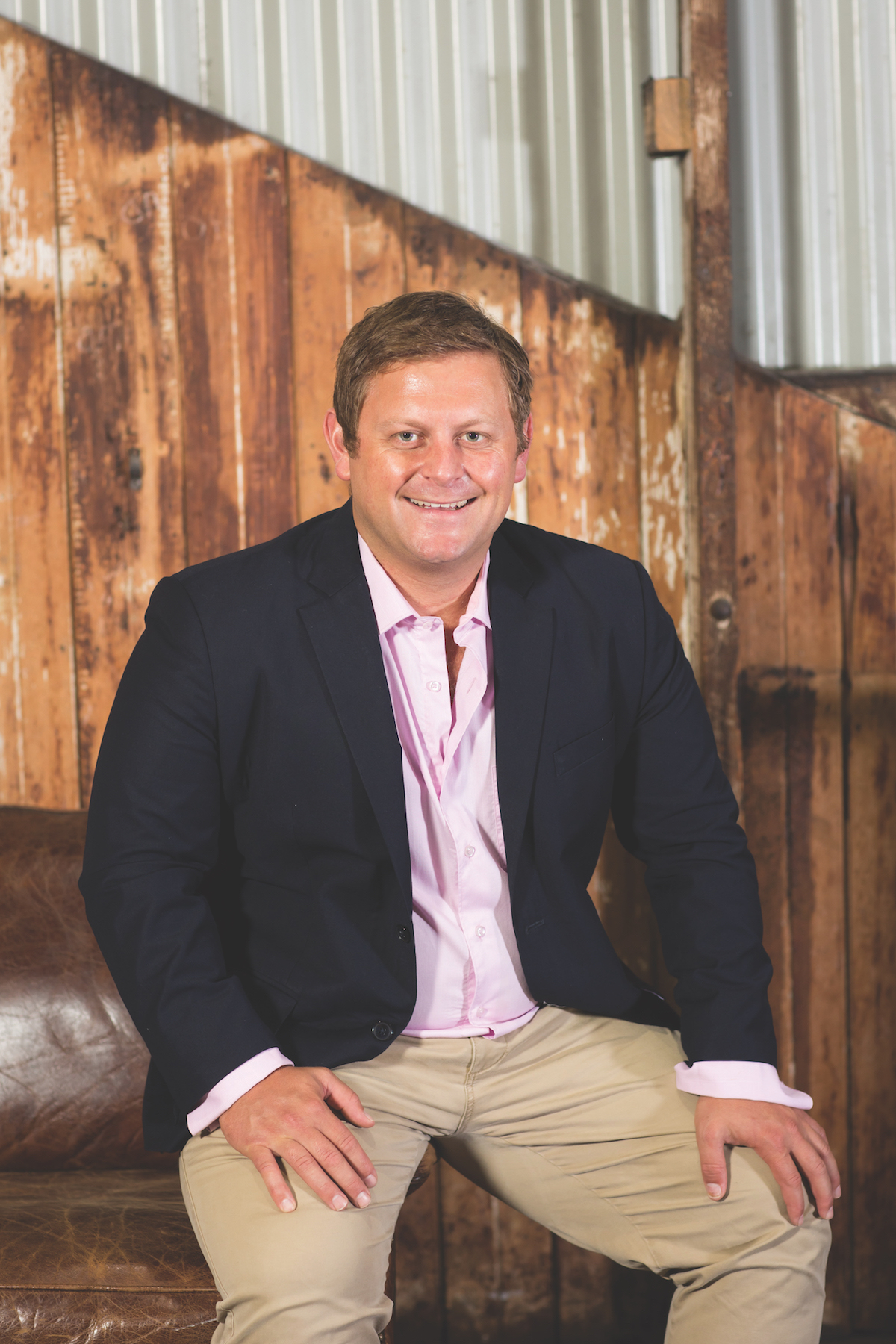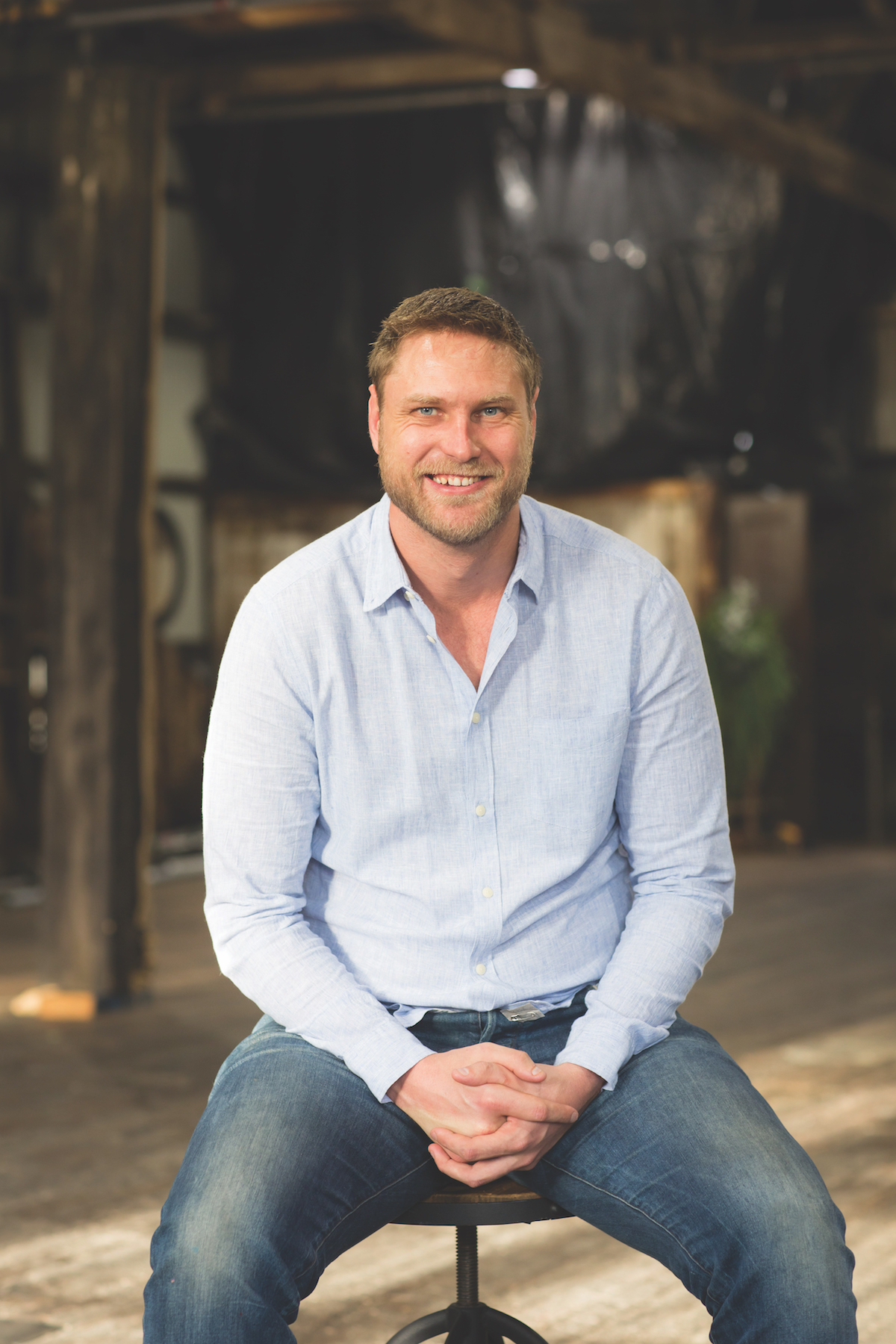Wake Up Call: Oliver Sheer & Kingsley Seale
The dynamic duo behind team-building firm Be Challenged say employers must ‘wake up’ and pay as much attention to their employees as they do to technology.
Gathered in a conference room in Sydney, each member of the iag management team has been instructed to strap on a headlamp and find their team table. As the last of the group shuffles to their allotted space, the lights suddenly go out. A series of clicking sees the headlamps turned on, illuminating the large aluminium box sealed with a combination lock on the table in front of them.
They don’t know it now, but stacked neatly within that box are four more cases, also protected by combination locks. Once a team breaks into the first box, each new case must be opened, revealing a series of additional puzzles. If all are completed before the timer reaches zero, this will provide the final electronic combination code needed to unlock a single, larger box in the centre of the room.

Collaborative and creative problem-solving are needed to come out on top – but the tasks are complex, the competition is cloaked in darkness, and the clock is ticking.
"The pressure is intense and, at times, teams will doubt that they can be successful. But just as in life, sport and business, a cool head, logical approach, and a belief in your own logical approach, and a belief in your own abilities will ensure success in all but the most hopeless of situations," says Oliver Sheer, Managing Director of corporate team-building company Be Challenged.
The exercise, known as ‘Beat the Box’, is just one of many activities selected to meet the unique goals of the group, and from which countless other corporations have benefited, including the likes of Atlassian, PwC, Wesfarmers and CommBank.
"It all starts with an initial consultation with a company so we can benchmark where they are and what they’re trying to achieve. Most of all, we need to know the ‘why’," says Oliver. "From here, we listen, finetune, and educate them as to what can and cannot be achieved in one program. Then we put a plan together."
For Oliver Sheer & Kingsley Seale, collaboration is key
Oliver runs the business with his good mate and Director of Operations Kingsley Seale. The pair first met in middle school and bonded over their shared affinity for team dynamics and leadership roles, both progressing to hold captainships across a variety of schooling, scouts and sporting activities.

"The wake-up call came early for both of us, with the realisation that together, in collaboration, we can achieve a lot more," says Kingsley. "We understood the balance needed between looking after individual people, developing relationships, and the positive effects it could have."
This dynamic saw the pair play in the same rugby club as captain and vice-captain, and work at the same pub, starting behind the bar together and progressing to become managers. "We realised that the focus on getting the best out of the team environment seemed to come naturally to us," adds Oliver. "Together, we had always been able to maximise the RPM out of whatever engine we were working with."
Be Challenged: building an effective team
After this epiphany, the pair decided over a few beers that they’d put their talents to good use and purchase Be Challenged. 6 weeks later, they took over the running of the company. This was in 2011 and now, 6 years later, Be Challenged has experienced average growth of 31%.
"There was plenty at stake, and there still is, but we understand the power and value in what we do. We know how important it is in growing and evolving your people, and we want to make a difference," says Kingsley.
With Be Challenged’s first program, it became clear they had their work cut out for them. Though driven to take over the company because of their love of building effective teams, they had no idea just how big a task lay ahead.
90% of leaders think an engagement strategy has an impact on business success, but barely 25% of them have a strategy.
"The penny dropped in that first session. We realised that this understanding around becoming an effective team was far from the norm," says Kingsley. "We saw that the engagement of people and teams was usually a one-off event that was lucky to be done yearly, often as an afterthought. The development of people and the level of communication needed for empowerment and fulfilment seemed to have fallen off the priority list."
Putting the emphasis back on employee engagement
A key issue that had seemingly begun splintering the traditional focus on employee engagement was the evolving role of technology in business, meaning gadgets and systems were now being considered more important than people.
How often do you require a software update or IT maintenance scan? That’s how often you should check in with your people as well. – Oliver Sheer
"Don’t allow the excitement of technology to blind you to the point of forgetting about your people," warns Oliver. "While technology is going to assist with fuelling growth and allowing companies to be leaders in their industry, failure to manage and look after your people will leave the tech obsolete. Companies need to find a balance between fostering and developing their people, in a similar sense to the time and effort they spend on upgrading and managing their technology. Think about it: how often do you require a software update or IT maintenance scan?" he asks.
"That’s how often you should check in with your people as well. Our people are the ones managing the relationships, making decisions, and managing and driving the company’s growth. The tech is just the tool used to maximise that growth. The attention to tech and people needs to be respected equally."
Be Challenged is focused on outcomes, not experience
It’s been a decade, and in that time Be Challenged has produced and facilitated more than 3,000 team-building events, each with its own unique focus. It has also maintained ongoing relationships with many of those businesses, to even becoming an extension of their existing resources.
The Be Challenged team has grown into a multinational organisation, continually evolving its programs to ensure it provides activities, workshops and simulations that most people enjoy participating in rather than the traditional cringe-worthy programs people have become accustomed to in token team-building days. "In addition to ensuring there was real, long-lasting change, we also needed unique programs that first and foremost focused on learning benefits," says Oliver.
"This pushed us in a direction no-one else was doing – being first and foremost focused on the outcome, not the experience. We’ve since taken this to the next level by ensuring these outcomes are aligning with our clients’ overall people strategy in a 12 to 18-month planned approach."
We’re all different; no longer can we treat everyone the same and no longer will people let us treat them the same. – Kingsley Seale
These will usually feature testing around different profiles from the ‘DISC’ spectrum, used to identify what particular personality different people on the team have, and how best to work with those people to achieve the best outcomes. "We’re all different; no longer can we treat everyone the same and no longer will people let us treat them the same. The more we know about each other and ourselves, the greater probability we have of becoming a high-performing team," says Kingsley.
"With the millennial worker in the workforce, managers must adjust their leadership style to retain employees. The cost and impact that retention levels have on the business is huge, but an effective and happy team drives better productivity," adds Oliver. "It’s time to wake up to that reality."